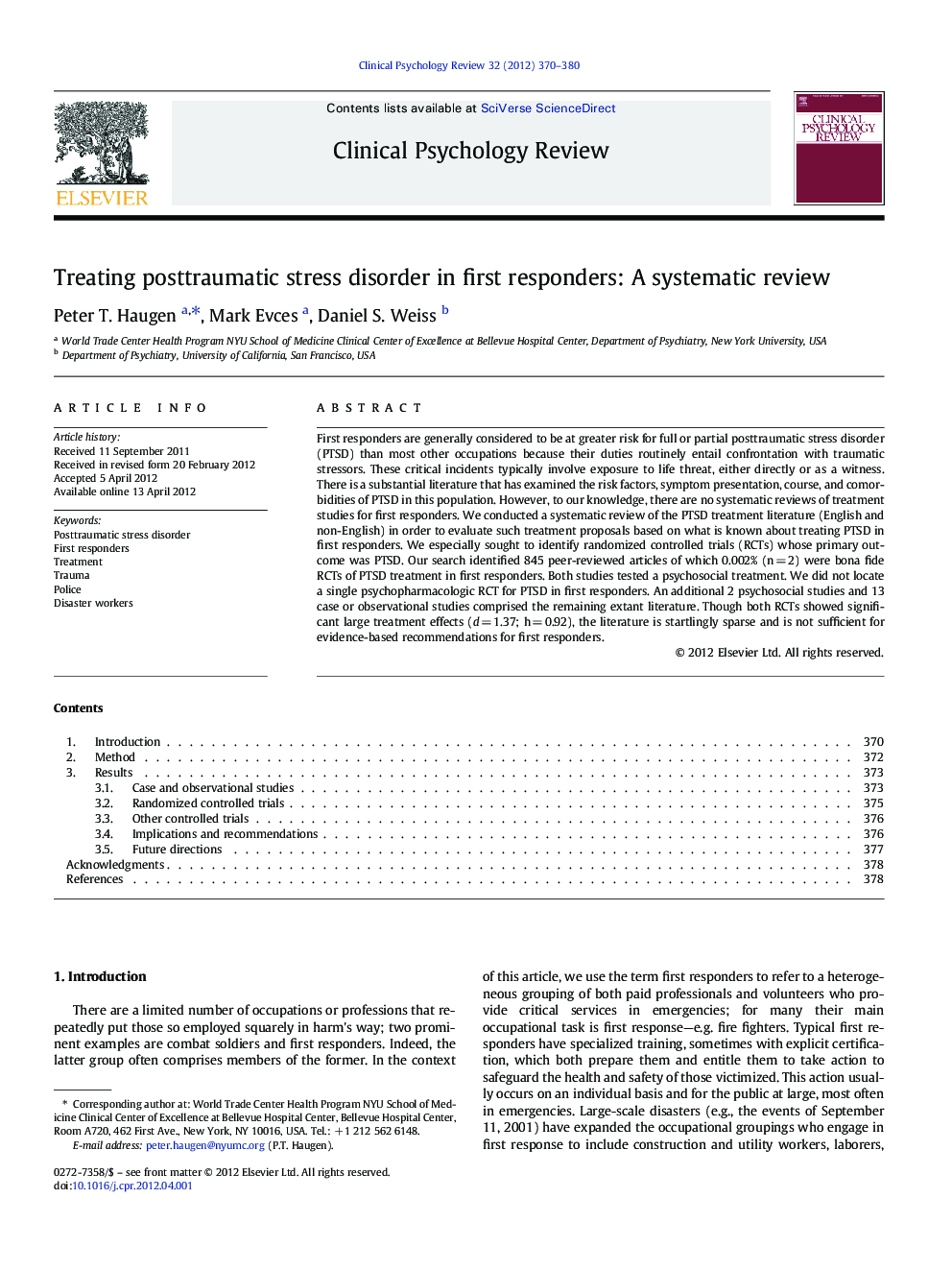| Article ID | Journal | Published Year | Pages | File Type |
|---|---|---|---|---|
| 903806 | Clinical Psychology Review | 2012 | 11 Pages |
First responders are generally considered to be at greater risk for full or partial posttraumatic stress disorder (PTSD) than most other occupations because their duties routinely entail confrontation with traumatic stressors. These critical incidents typically involve exposure to life threat, either directly or as a witness. There is a substantial literature that has examined the risk factors, symptom presentation, course, and comorbidities of PTSD in this population. However, to our knowledge, there are no systematic reviews of treatment studies for first responders. We conducted a systematic review of the PTSD treatment literature (English and non-English) in order to evaluate such treatment proposals based on what is known about treating PTSD in first responders. We especially sought to identify randomized controlled trials (RCTs) whose primary outcome was PTSD. Our search identified 845 peer-reviewed articles of which 0.002% (n = 2) were bona fide RCTs of PTSD treatment in first responders. Both studies tested a psychosocial treatment. We did not locate a single psychopharmacologic RCT for PTSD in first responders. An additional 2 psychosocial studies and 13 case or observational studies comprised the remaining extant literature. Though both RCTs showed significant large treatment effects (d = 1.37; h = 0.92), the literature is startlingly sparse and is not sufficient for evidence-based recommendations for first responders.
► Of 845 studies identified only 17 focus on PTSD in first responders. ► We identified no medication RCTs and only 2 psychosocial RCTs. ► Effect sizes in psychosocial RCTs are large. ► Based on the first responder literature identified, treatment guidelines are questionable. ► Additional treatment studies of PTSD in first responders are sorely needed.
